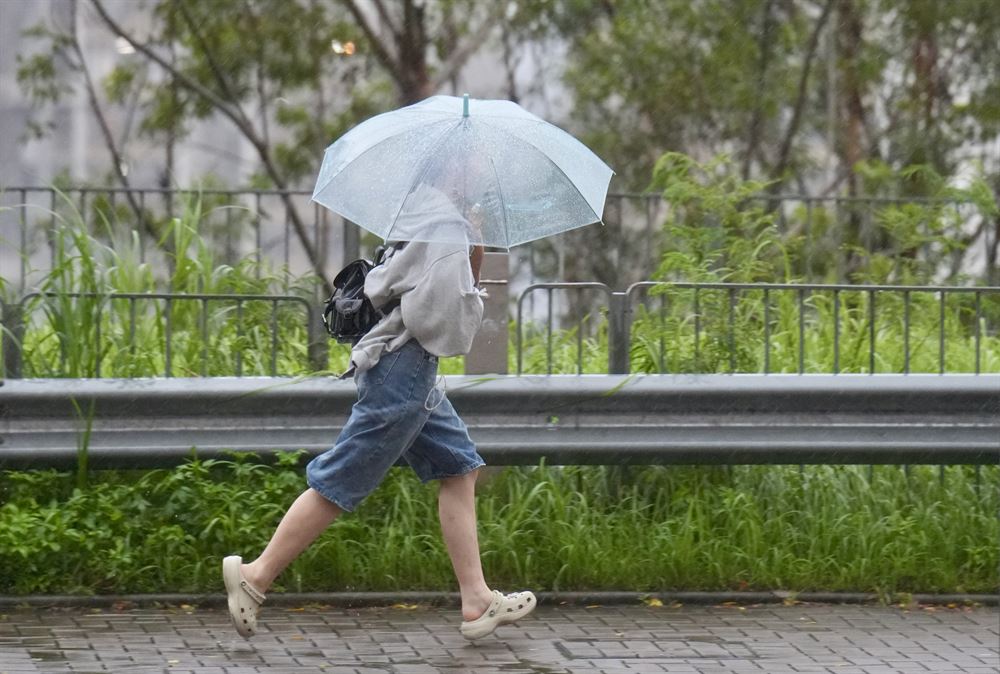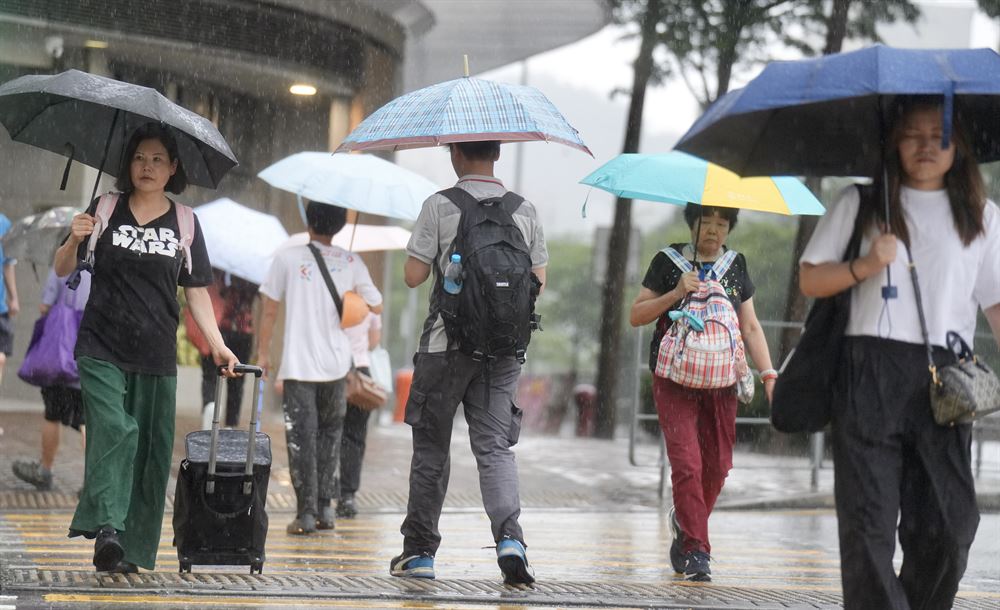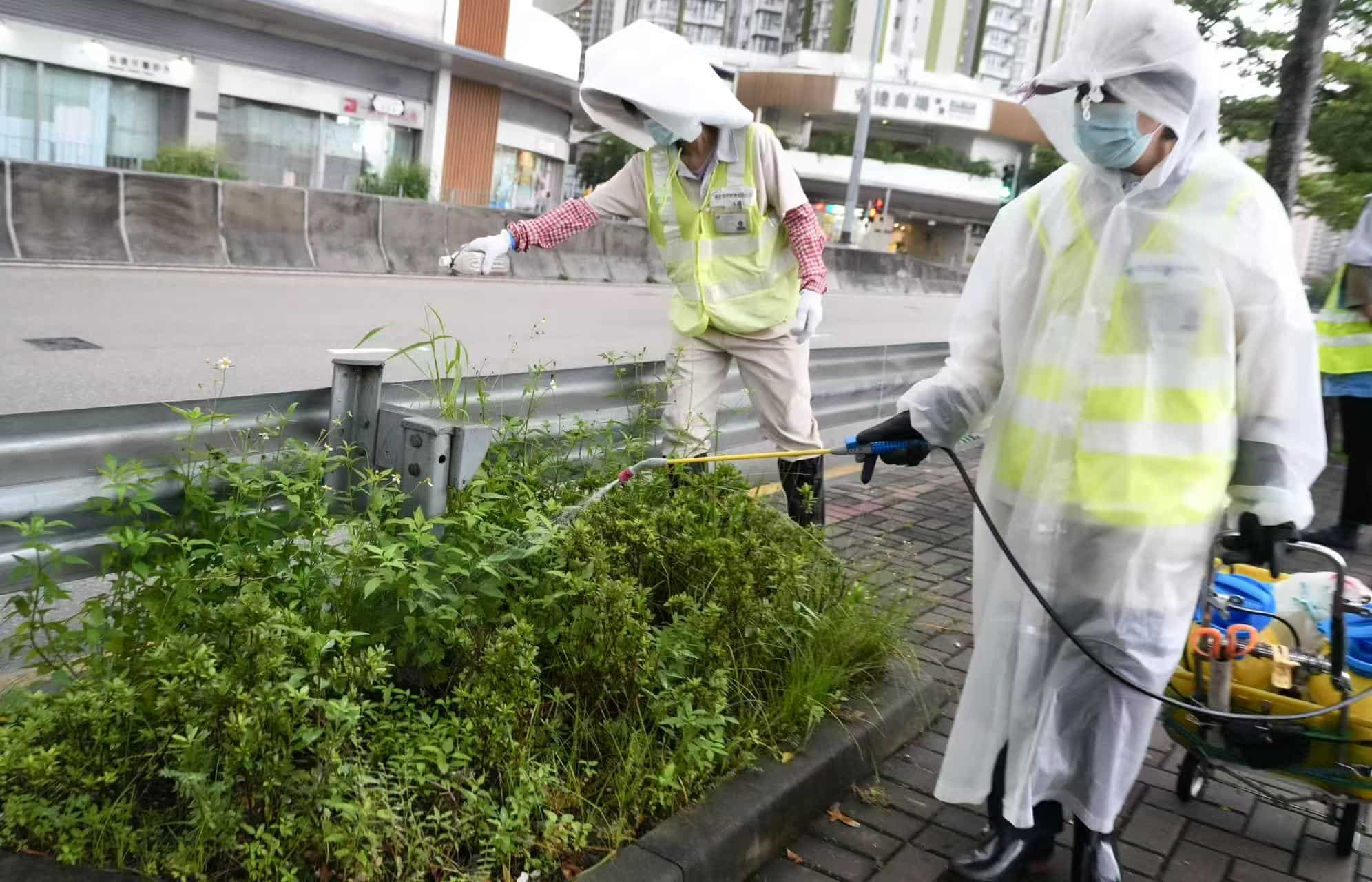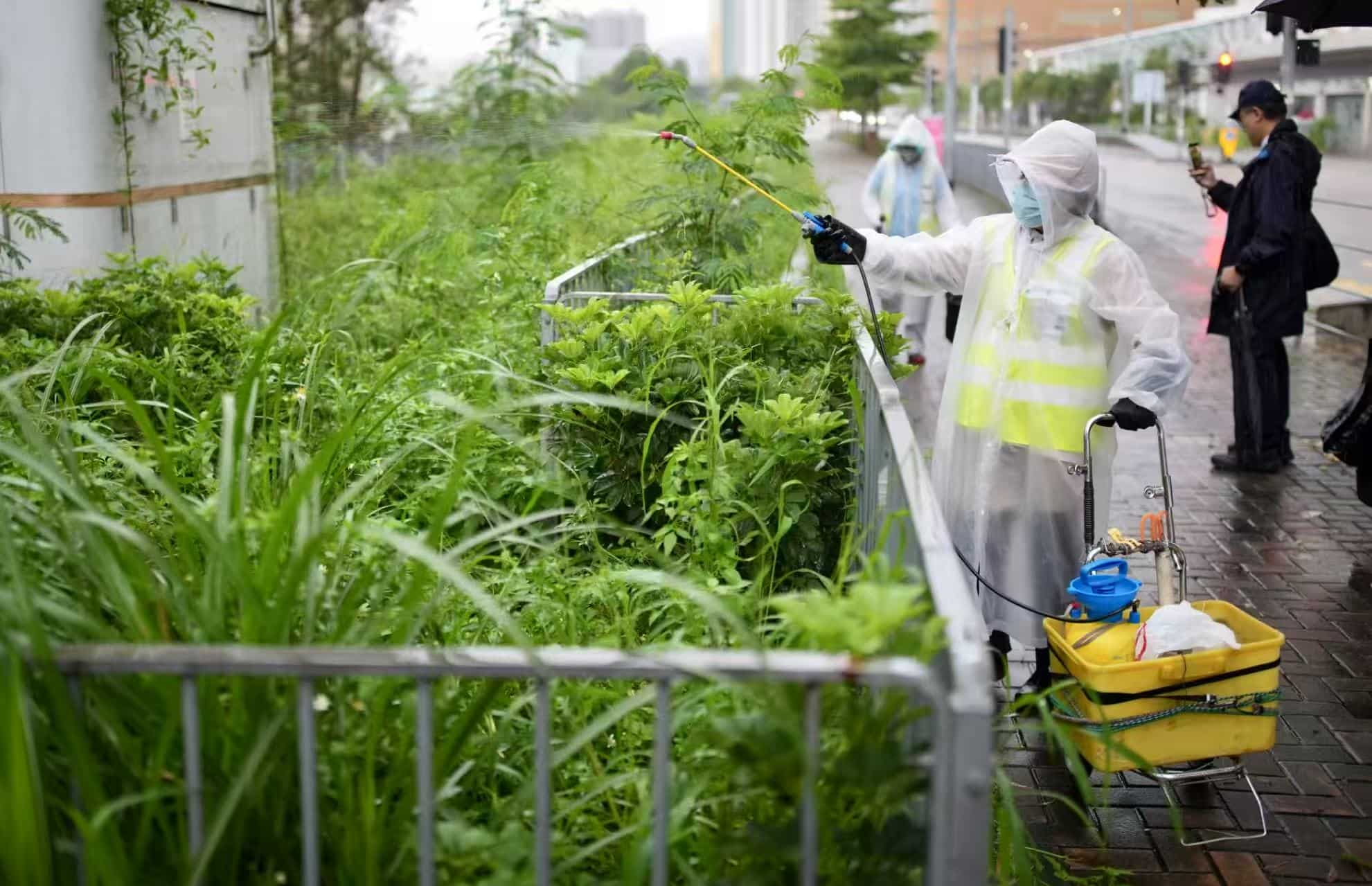
All afternoon classes were suspended in Hong Kong in Monday amid heavy showers and thunderstorms, while the authorities urged residents to clear stagnant water to prevent mosquito-borne diseases like chikungunya fever.
Heavy rain pounded the city on Monday morning, prompting the Hong Kong Observatory to raise the red rainstorm warning signal -- the middle level of a three-tier warning system -- at 12:20pm after having issued a milder amber signal twice at 6:30am and 10:25 am.
The red warning signal was up for more than hour before being replaced by the amber warning at 1:25pm.
READ MORE: Health authorities strengthen anti-mosquito measures in HK
The rainfall, at one stage, had exceeded 60 millimeters in Kowloon and in some areas in the eastern New Territories, according to the Observatory.

The Education Bureau said evening school classes will proceed if the amber rainstorm signal remains, or all rainstorm warning signals canceled at or before 5pm.
Schools should keep their premises open and implement contingency measures to ensure the safety of students, it said.
READ MORE: Hong Kong sees first case of chikungunya fever since 2019
The Observatory said an active southwest monsoon and upper-air disturbances will continue to bring heavy showers and squally thunderstorms to the coast of Guangdong province in the next couple of days, warning that the weather will remain unstable. It predicts that showers would ease off gradually from Thursday.
The severe weather has continued in Hong Kong for several days, with the highest black warning signal hoisted twice last week.

Due to rising temperatures and constant rainfall in summer, the authorities have warned of a higher risk of mosquito infestation due to the accumulation of stagnant water, and outbreaks of mosquito-borne diseases, such as the chikungunya fever and dengue fever.
READ MORE: Explainer: What is chikungunya fever?
Workers from the Food and Environmental Hygiene Department were deployed on Monday morning to carry out anti-mosquito spraying at a hilly area opposite On Tat Estate in Kwun Tong District where a 12-year-old boy – the city’s first chikungunya patient in six years – lives.
Chikungunya fever is commonly transmitted to humans through mosquito bites. The symptoms include fever, pain at the joints, headache, nausea, fatigue and rashes.

The disease has seen an outbreak in Guangdong, with more than 6,500 infections having been reported in Foshan city. The Guangdong authorities said the outbreak has been initially contained.
“Eliminating mosquito breeding sites and avoiding mosquito bites are the most effective measures against mosquito-borne diseases,” said Albert Au Ka-wing, head of the Communicable Disease Branch of the Centre for Health Protection.
READ MORE: WHO raises concern about spread of mosquito-borne Chikungunya virus
He urged residents returning from areas affected by mosquito-borne diseases to use insect repellents for 14 days after returning to Hong Kong.
The government said residents should thoroughly check all gully traps, roof gutters, surface channels and drains to prevent blockage, clean drains and surface channels with an alkaline detergent compound at least once a week, and install anti-mosquito screens on windows and doors.
Contact the writer at atlasshao@chinadailyhk.com


